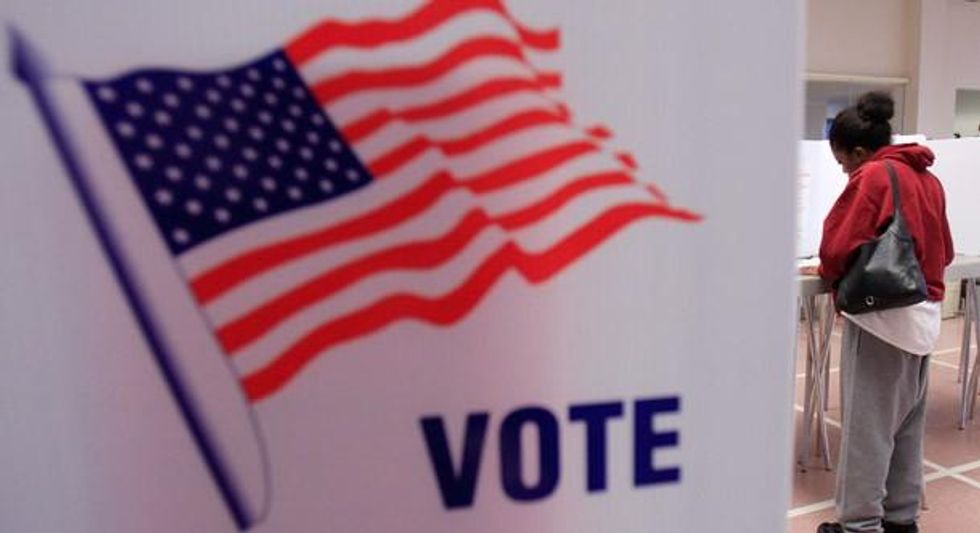Elected officials typically go out of their way to avoid alienating voters, particularly large and growing groups of voters. Most are deferential, some even pander.
But Florida Gov. Rick Scott has hit on a different approach to the Sunshine State's politically potent minority vote. Rather than wooing African-American and Hispanic voters, Scott is busy cutting thousands of them out of the Florida electorate. And because Florida is so closely contested in presidential races -- just 537 votes there made George W. Bush president in 2000 -- the purge of even a few thousand could make a huge difference in the race between Scott-endorsed Republican Mitt Romney and President Barack Obama.
Urged on by the governor, Florida officials last year compiled a list of more than 180,000 registered voters with what the state considered questionable citizenship status. Because he was queasy about the reliability of driver's license records and other information on which the list was based, then-Secretary of State Kurt Browning had his staff scrub it down to about 2,600 names where the evidence of non-citizenship was deemed strongest.
Rather than wooing African-American and Hispanic voters, Florida Governor Rick Scott is busy cutting thousands of them out of the electorate.
The state is giving voters on the list 30 days to produce proof of their citizenship. It warns that those who don't will be purged from the rolls.
But it turns out that even the scrubbed-down list is loaded with mistakes. In Miami-Dade County alone, 359 people who received notice of the pending purge already have provided proof of their citizenship; county officials have verified the citizenship of 26 others.
The list also is top-heavy with names drawn from urban centers where the minority vote is heaviest and Democratic candidates typically run strongest.
The alleged non-citizens include Bill Internicola, a 91-year-old World War II veteran who has voted in Florida for 14 years; Juan Artabe, a 41-year-old Cuba native who became a citizen in 2009; and Enrique Barreto, a 54-year-old Miami Republican, who became a citizen in 2008.
The list is so flawed that even some of Scott's fellow Republicans are distancing themselves from it and from the purge effort. Browning, who resigned earlier this year, has suggested to reporters that he reminded the governor that prospective voters already must swear to their citizenship and face prosecution if they lie.
And Mike Ertel, a Republican who serves as Seminole County Supervisor of Elections, has posted a picture on Twitter of him holding a U.S. passport that belonged to a voter identified on the list.
The purge also may be illegal. A coalition of civil rights organizations argues that the governor's initiative may violate the National Voter Registration Act, which bars action to reduce voter rolls within 90 days of an election; Florida has a primary on Aug. 14, well within that protected window.
Even worse, at least in my book, is the fact that based on what is at best shaky evidence the purge puts a burden on Floridians to prove their citizenship. Those who can't produce the required documents or for any reason miss the 30-day deadline are automatically excluded. The state need do nothing to prove it's contention that they're not qualified.
Still, Scott is pressing ahead. Despite a dearth of evidence that voter fraud is anything more than negligible -- so rare that it would not change the outcome of elections even in closely-contested Florida -- the governor is investing tens of thousands of taxpayer dollars to harass thousands of his constituents.
This is bad policy and bad politics. Scott should call it off, and then apologize.

